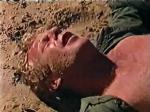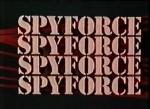AustLit
Latest Issues
AbstractHistoryArchive Description
Series exploring the covert activities behind Japanese lines of covert operatives working from a secret headquarters in Sydney.
According to Don Storey, in his Classic Australian Television, Mirams determined not to dwell on Japanese treatment of prisoners of war nor to show the Australians as incorruptible heroes, but did intend to counter the idea that the war was won entirely by American soldiers.
According to Storey,
Mirams could only provide money for the pilot. Each episode cost approximately $23,000 for a return of only $18,000, which over 42 episodes amounted to a loss of almost a quarter of a million dollars. At one stage cash flow became so tight that Thompson and Sumner went 'on strike' until they got paid. To cover his debts Mirams sold his rights in the series to Paramount Pictures. Consequently, Mirams made nothing from the show despite excellent overseas sales.
Albert Moran, in his Guide to Australian Television Series, notes of script-writer Ron McLean that 'McLean was never one to get precious about originality and Spyforce cheerfully plundered such stories as Callan, The Spy Who Came In From The Cold, the James Bond stories and The Bridge on the River Kwai for many of its narratives.'
Storey sums up Spyforce as follows: 'The show improved as it went on - the episodes became tighter and faster, and the directing proved more imaginative. The lead cast gave excellent performances, and the special effects got better - all testimony to the short-cuts and improvisation which the series is legendary for.'
Notes
-
The program had the following voiceover during the opening credits, which emphasised its grounding in historical events: 'Early in 1942 the Japanese Army swept through the South Pacific towards the Australian mainland. They overran the Malay Peninsula and reached deep into the jungles of New Guinea. As a result numbers of civilian planters and soldiers were formed into highly trained espionage teams by Allied Headquarters in Australia. These men were directed into sabotage operations deep behind enemy lines throughout the Pacific area. Much of their work must remain top secret. One of these groups may well have been called: Spyforce.'
-
Moran notes that Jack Thompson left the program and was replaced by Nick Tate, but Storey emphasises that Tate had only a brief, recurring role and that Thompson remained with the program until its cancellation.
Publication Details of Only Known VersionEarliest 2 Known Versions of
Works about this Work
-
Forgotten Australian TV Writers : Ron McLean
2021
single work
essay
— Appears in: FilmInk , 5 December 2021; -
From Selling Shoes To Writing Scripts
1974
single work
— Appears in: The Australian Women's Weekly , 24 April 1974; (p. 15) Kusko outlines Ron McLean's career in television from his answering a call in the newspaper for stories for Riptide to running his own production company. McLean talks about the job of script writing and working for Crawfords.
-
From Selling Shoes To Writing Scripts
1974
single work
— Appears in: The Australian Women's Weekly , 24 April 1974; (p. 15) Kusko outlines Ron McLean's career in television from his answering a call in the newspaper for stories for Riptide to running his own production company. McLean talks about the job of script writing and working for Crawfords.
-
Forgotten Australian TV Writers : Ron McLean
2021
single work
essay
— Appears in: FilmInk , 5 December 2021;
- 1939-1945





